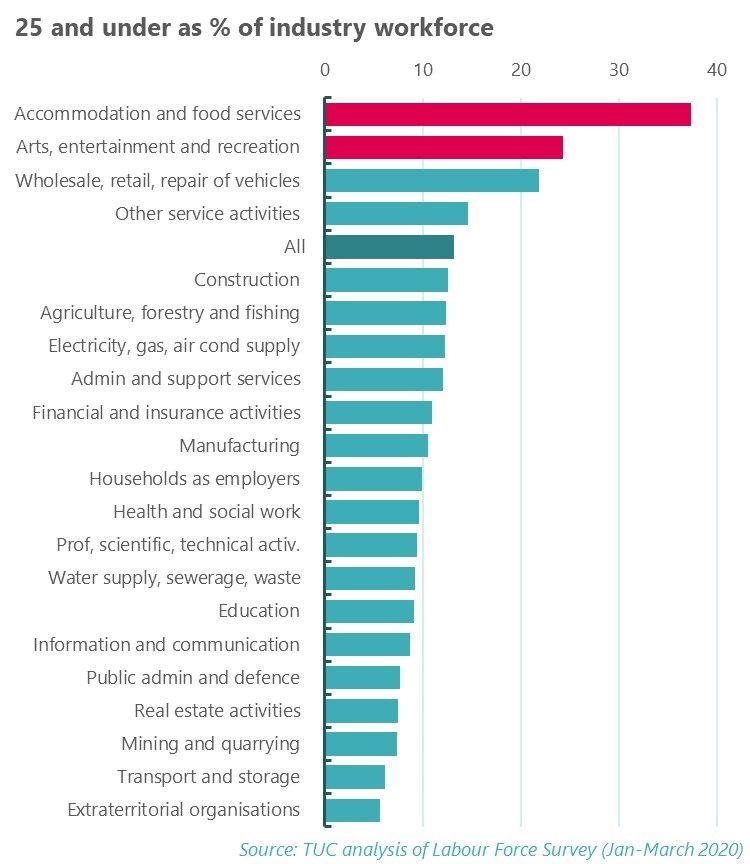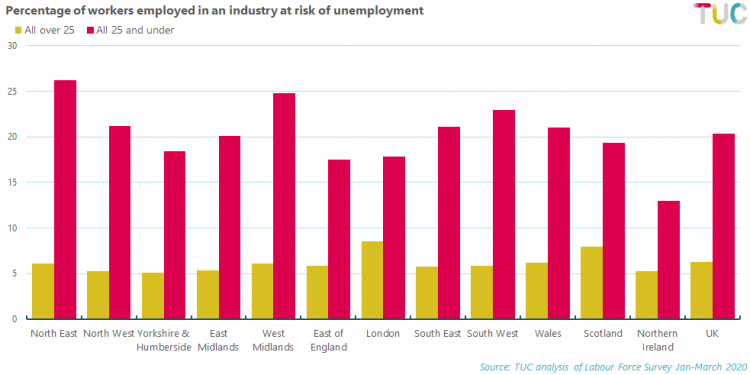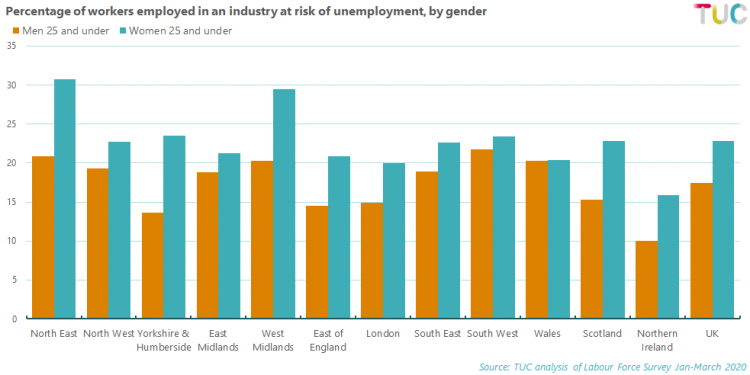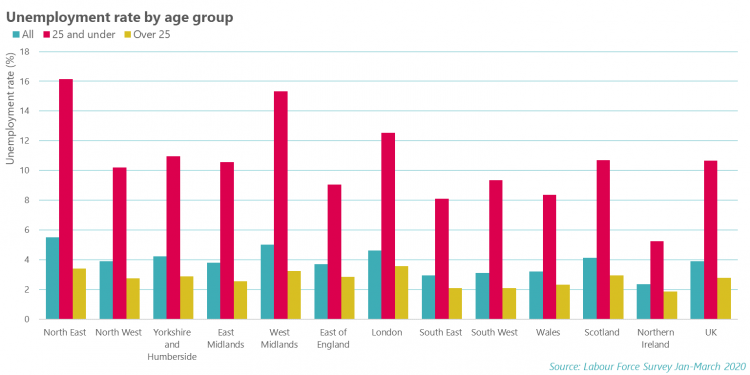There is another crisis coming - the government must act now to stop mass youth unemployment
As the government thinks about winding down its job retention schemes and lockdown is lifted ever further, trade unions are working hard to stop mass job losses at all costs. We are acutely aware that, if the government does not act, another crisis is just around the corner – a catastrophic surge in youth unemployment.
TUC analysis today reveals that young workers are three times more likely to be employed in sectors where jobs are most “at risk”. The two industries with the highest proportion of young workers are also the two industries that have so far been hit hardest by the coronavirus crisis.
Workers aged 25 and under make up 13 per cent of those in employment across all industries.
However, a huge 37 per cent of workers in the accommodation and food industry, and a quarter in the arts, entertainment, and recreation industry, are aged 25 or under.
We measure “at risk” using three criteria:
- the rate of furloughed workers
- the proportion of businesses that have paused or cancelled
- the proportion of businesses with turnover falling more than 50 per cent.
The accommodation and food services industry and the arts, entertainment and recreation industry not only score highly against all these measures, but are in a league of their own with rates far higher than the construction sector in third place.
While every industry will be impacted by the coronavirus crisis, these figures do suggest that these industries are at particularly high risk of job losses.
There are slight regional differences in how likely those 25 and under are to be employed in at-risk industries, but the increased likelihood of young workers working in these industries is true in every region and devolved nation.
We also found significant differences between men and women
Almost one quarter of young women (23 per cent) who are in employment work in an “at-risk” industry. Women aged 25 and under are six times more likely than men over 25 to be working in the accommodation and food industry (18 per cent, compared to 3 per cent).
The youth unemployment rate was higher than the average for all ages going into the crisis. Long-term unemployment can impact on a person’s labour market outcomes later in life – such as through lower wages, or higher rates of further periods of unemployment. But research has shown that these “scars” of long-term unemployment when younger are more significant compared with people who experience it later in life.
We are all facing an uncertain future. Our new research adds to the mounting evidence showing young workers will bear the brunt of any recession.
But this doesn’t have to be the case. The government can take bold action now – like it did to protect jobs during the lockdown – and guarantee good, decent work for every person who needs it, while building a sustainable, green economy for the public good.
An ambitious job guarantee scheme should deliver jobs that are paid well, guarantee accredited training and provide a community, public benefit and/or help to decarbonise the economy- so jobs can tackle the threats of unemployment and the climate crisis together.
The scheme should be delivered at regional or devolved nation level, in partnership with unions, local leaders, employers, local Jobcentre Plus and community partners, mirroring a National Council for Reconstruction and Recovery.
It should be open to as many people as possible who face long-term unemployment. But in seeking to prioritise, it should guarantee jobs to:
- People aged 25 and under who have been unemployed for three months; and
- People aged over 25 who have been unemployed for six months
As job guarantee scheme is an essential part of an ambitious national recovery plan, to build back a fairer, greener and stronger economy, in equal partnership with unions, government and employers, ensuring decent work for all, revitalised public services and a secure safety net.
We must invest in this fairer future – and that means investing in this country’s young people.
Our full analysis and supporting tables can be found in our research note.
Stay Updated
Want to hear about our latest news and blogs?
Sign up now to get it straight to your inbox




